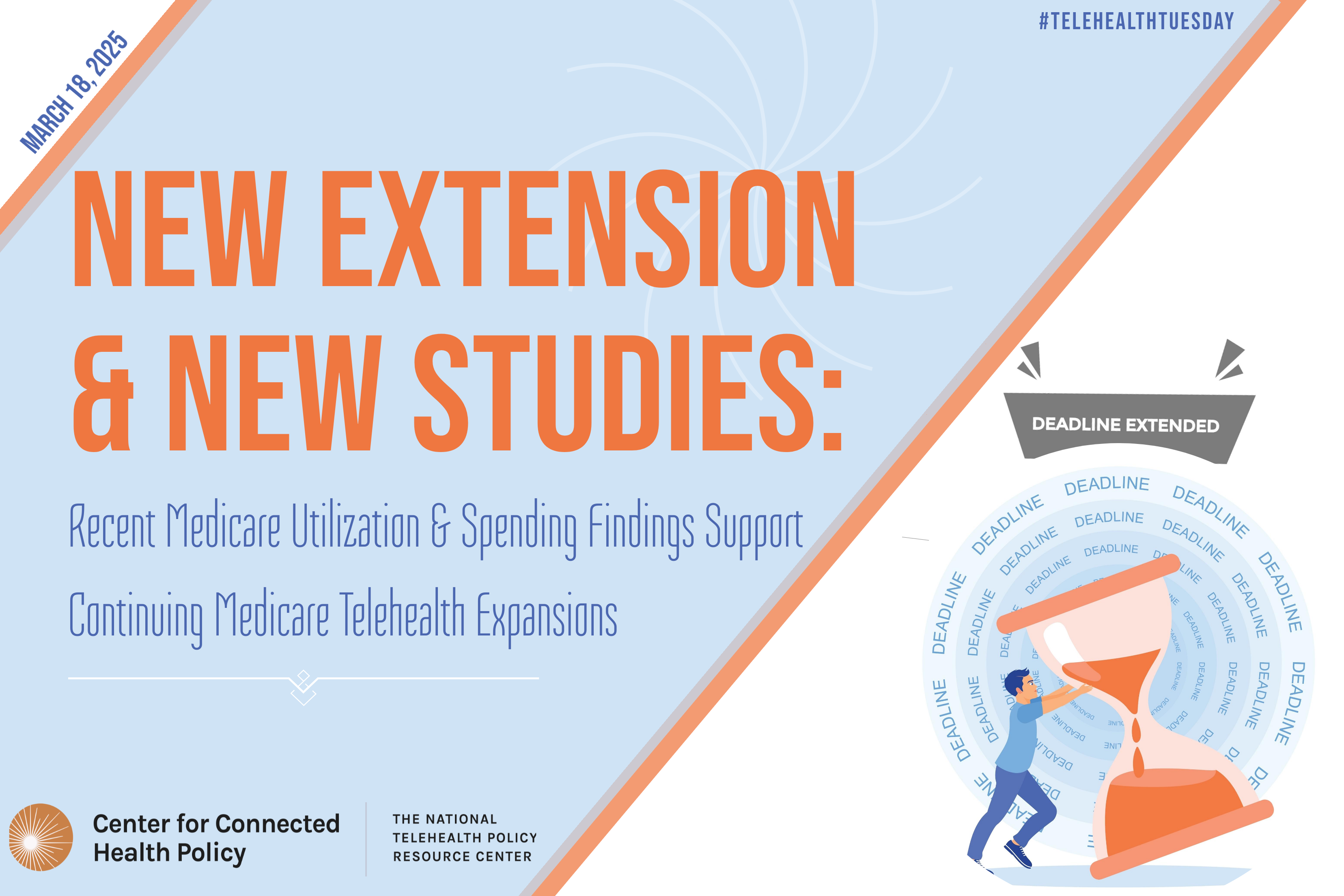Updates to CMS Telehealth Materials in Light of Medicare Extensions, Plus State Policy Developments

CCHP’s April newsletter is here! This month’s topics include – Medicare Telehealth Extension & Updates on CMS Telehealth Materials; School Psychologists Licensure Interstate Compact; The Broadband Gap Blocking Telehealth Access; Latest Developments in CCHP’s Telehealth Policy Finder and Policy Trend Map; Automation in the Medicaid Prior Authorization Process; New York Blocks Texas Lawsuit Against Telehealth Abortion Provider; Tele-Buprenorphine Initiations for Opioid Use Disorder.



